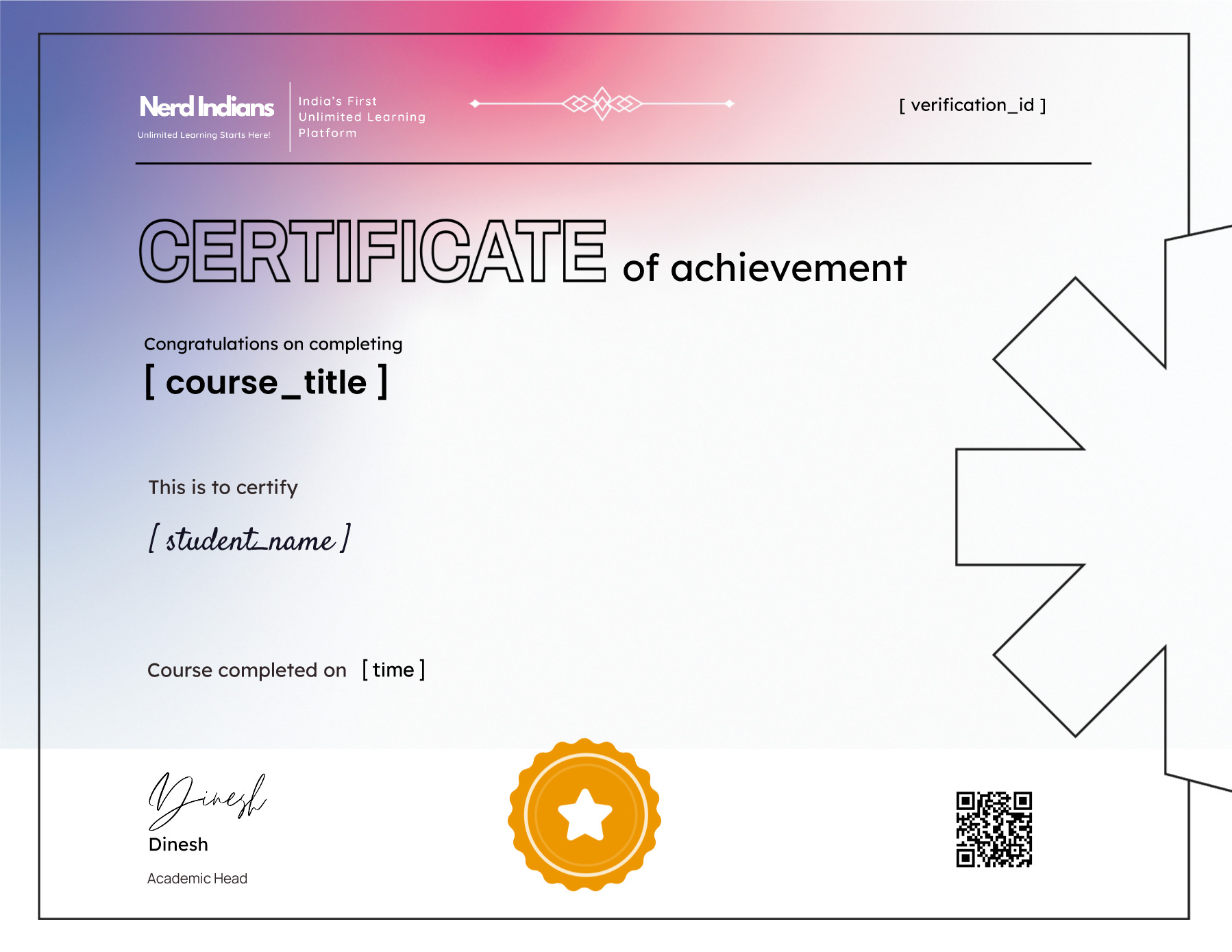Scope of this course: Pharmaceutical products are developed, manufactured, controlled, and distributed under strict regulations to ensure that they are safe, effective and of high consistent quality. On completion of this course, you will gain the skills to work in a highly regulated environment and learn how to act as liaison between companies and regulatory authorities.
A career in regulatory affairs in India can be both challenging and rewarding, particularly within industries such as pharmaceuticals, medical devices, biotechnology, food and beverages, and cosmetics. Regulatory affairs professionals play a crucial role in ensuring that products meet the regulatory requirements set by government authorities before they can be marketed or distributed.
Here’s an overview of a regulatory affairs career in India:
Responsibilities:
- Regulatory Compliance: Ensuring that products comply with local and international regulations, standards, and guidelines.
- Documentation: Preparation, review, and submission of regulatory documents to obtain approvals or licenses for product registration, clinical trials, manufacturing, and import/export.
- Communication: Liaising with regulatory agencies, government bodies, and internal stakeholders to address queries, provide updates, and facilitate approvals.
- Strategy: Developing regulatory strategies to expedite approvals, mitigate risks, and ensure compliance throughout the product lifecycle.
- Monitoring: Keeping abreast of regulatory developments, changes in legislation, and industry trends to anticipate and adapt to regulatory requirements.
Education and Skills:
- Educational Background: A bachelor’s or master’s degree in pharmacy, life sciences, chemistry, biotechnology, or related fields is typically required.
- Regulatory Knowledge: Understanding of regulatory frameworks, laws, guidelines, and procedures relevant to the industry.
- Analytical Skills: Ability to interpret complex regulations, assess their impact on products or processes, and develop compliance strategies.
- Attention to Detail: Thoroughness in preparing regulatory documents and ensuring accuracy and completeness.
- Communication Skills: Effective communication with regulators, colleagues, and stakeholders, both verbally and in writing.
- Project Management: Capability to manage multiple projects simultaneously and meet deadlines in a fast-paced regulatory environment.
Career Path:
- Entry-Level Positions: Regulatory affairs associate, regulatory affairs assistant, regulatory affairs coordinator.
- Mid-Level Positions: Regulatory affairs specialist, regulatory affairs manager, regulatory affairs consultant.
- Senior-Level Positions: Director of regulatory affairs, head of regulatory affairs, regulatory affairs executive.
- Consultancy/Advisory Roles: Independent regulatory consultants advising companies on compliance and strategy.
Industry Specifics:
- Pharmaceuticals: Focus on drug registration, clinical trial approvals, pharmacovigilance, and compliance with Good Manufacturing Practices (GMP).
- Medical Devices: Emphasis on product registration, quality management systems (QMS), and conformity assessment processes.
- Biotechnology: Involves navigating regulatory pathways for biologics, biosimilars, gene therapies, and genetically modified organisms (GMOs).
- Food and Beverages: Concerned with food safety, labeling regulations, additives, and nutritional claims.
- Cosmetics: Addressing regulatory requirements for product safety, labeling, and ingredient listing.
Professional Development:
- Certifications: Pursuing certifications such as RAC (Regulatory Affairs Certification) can enhance credibility and competence.
- Continuing Education: Staying updated with regulatory changes through workshops, seminars, webinars, and professional conferences.
- Networking: Engaging with regulatory professionals, industry associations, and regulatory agencies to expand knowledge and opportunities.
Regulatory Environment in India:
- Regulatory Authorities: In India, regulatory oversight is provided by agencies such as the Central Drugs Standard Control Organization (CDSCO), Food Safety and Standards Authority of India (FSSAI), Central Insecticides Board (CIB), and Bureau of Indian Standards (BIS).
- Challenges: Regulatory landscape in India can be complex, with evolving regulations, lengthy approval processes, and sometimes ambiguous guidelines.
- Opportunities: Growth in the Indian pharmaceutical, biotechnology, and healthcare sectors presents opportunities for regulatory professionals, especially with the emphasis on innovation and quality.
What you will Learn?
This is a corporate program where Managers from Top companies like GSK, Arabindo, MMS holdings will train the students and new trainees.







